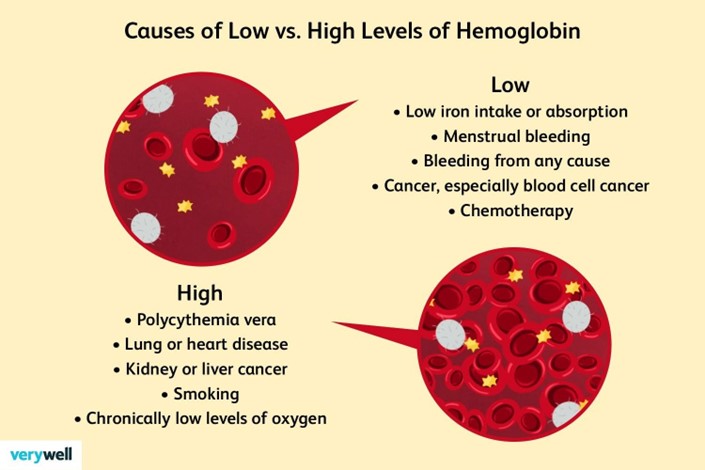A nurse is collecting data from a client whose Hgb is 8.8 mg/dL. Which of the following statements should the nurse expect?
"I feel tired all the time."
"I have noticed that my fingernails are becoming thicker."
"I have to go to the bathroom all the time."
"I notice that my hands are always shaky."
The Correct Answer is A
A hemoglobin (Hgb) level of 8.8 mg/dL indicates anemia, which is a decrease in the oxygen-carrying capacity of the blood. Fatigue and tiredness are common symptoms of anemia. When the body does not have enough hemoglobin to transport oxygen effectively, it can lead to feelings of fatigue and a lack of energy.
The other options are not directly associated with a low hemoglobin level:
b) "I have noticed that my fingernails are becoming thicker." Thicker fingernails are not typically associated with a low hemoglobin level. Changes in fingernails can be atributed to various factors, but they are not directly related to anemia.
c) "I have to go to the bathroom all the time." Frequent urination is not typically associated with a low hemoglobin level. It can be related to other factors such as urinary tract infections, diabetes, or diuretic use, among others.
d) "I notice that my hands are always shaky." Hand tremors are not directly associated with a low hemoglobin level. Tremors can have various causes, such as neurological conditions, medication side effects, or excessive caffeine intake, but they are not directly linked to anemia.

Nursing Test Bank
Naxlex Comprehensive Predictor Exams
Related Questions
Correct Answer is D
No explanation
Correct Answer is D
Explanation
The nurse should expect to find hyperkalemia in the medical record of a client who has sustained a full- thickness burn and is in the emergent phase of the burn. This is due to the release of potassium from damaged cells into the bloodstream.
a) Hypernatremia is not a common finding in the emergent phase of a burn.
b) Hypercalcemia is not a common finding in the emergent phase of a burn.
c) Hypermagnesemia is not a common finding in the emergent phase of a burn.
Whether you are a student looking to ace your exams or a practicing nurse seeking to enhance your expertise , our nursing education contents will empower you with the confidence and competence to make a difference in the lives of patients and become a respected leader in the healthcare field.
Visit Naxlex, invest in your future and unlock endless possibilities with our unparalleled nursing education contents today
Report Wrong Answer on the Current Question
Do you disagree with the answer? If yes, what is your expected answer? Explain.
Kindly be descriptive with the issue you are facing.
